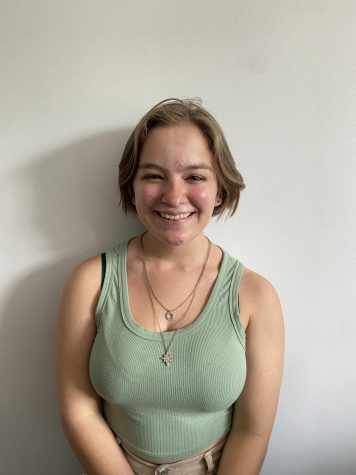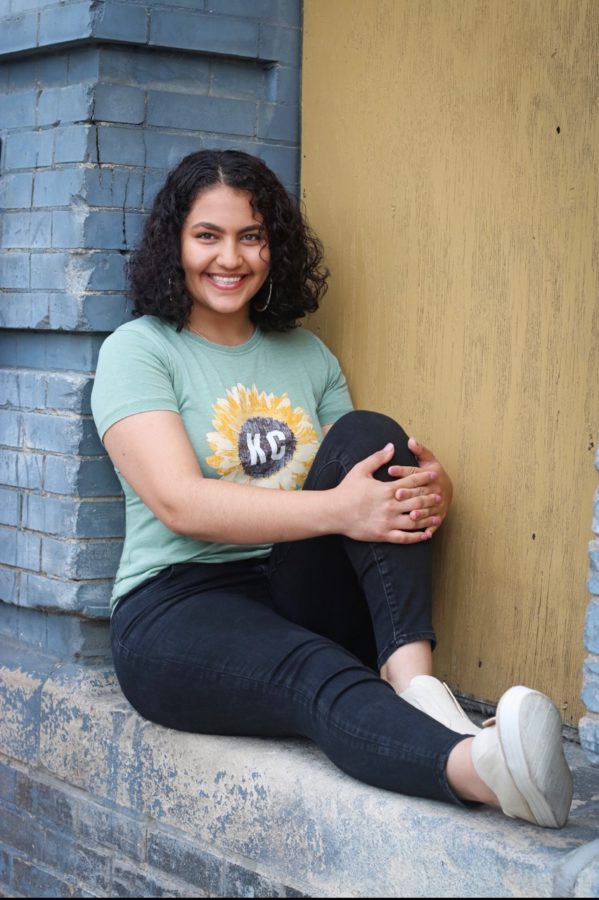The Other Side of the Desk
Senior shares experience volunteering as Science National Honors Society tutor
In high school, many students explore their different interests, and senior Darya Moiny has taken full advantage of this to pursue her passion for science.
“It was Honors Bio that got me into science with the research papers, then there [were] extra credit field trips [to] hear scientists speak,” Moiny said. “That was what really got me into science because it wasn’t just what we learned in school and then seeing it outside of school — it was building on everything we knew and going to the next level. I was blown away by that.”
After high school, Moiny plans on majoring in biochemistry or cellular and molecular biology, then going into medicine.
“That’s really where the science is applied, especially in humans,” Moiny said. “There’s just so much that you can do with it, especially with research. That would be the goal one day — for me to learn, research, find cures and take what we know about medicine to the next level to help promote even more healing.”
Though Moiny has big plans for the future, at the present moment, she remains in high school. So, she joined Science National Honors Society as a way to continue pursuing science.
“We always did labs and learned about science, but I was more interested in trying to take that to the next level and seeing it happen outside of the classroom, because [science] is constantly around us,” Moiny said. “It’s constantly in the news, and it defines a large part of our lives. I was looking for that when I joined.”
So far, Science National Honors Society, or SNHS has provided Moiny with a variety of opportunities. One thing SNHS provides is tutoring.
“It’s highly encouraged by teachers, because it gives [students] a chance to get help before going to the teacher,” Moiny said. “And, [the students] are working with [other] students, so there’s less pressure to be perfect.”
Being a tutor has offered Moiny new insights on the learning process.
“I had somebody ask me once if they could see the test [they were studying for.] The goal isn’t to do well on the test, it’s to learn the information,” Moiny said. “From the students’ side, I would say a lot of the pressure is to get the grade and pass your AP exam. For the teaching side, it’s more about the actual learning of the content. You can get an A on the test, but if the content goes out of your head, what good did it do you to learn it?”
Moiny tries to help students with more than just science content.
“We try to teach them good study skills to be successful in the classes that they’re taking,” Moiny said. “What makes a student successful [is] when they can transition to ‘How can I learn this for me?’ instead of ‘How can I learn this to get that A?’”
The benefits of tutoring don’t lie solely in academic pursuits. Moiny has found tutoring to be a useful means of connecting with others.
“I tend to be someone who likes to work more independently, but tutoring is a nice way to work on group collaboration,” Moiny said. “It’s [also] trying to learn how to connect to kids. They’re only a few years younger than us, but with COVID, they’re in their own world, and they’re kind of wide-eyed and scared.”
Moiny has advice for anyone who may be facing a daunting science curriculum ahead.
“Chemistry is never as bad as anyone makes it sound,” Moiny said. “It is super overwhelming, [and] it’s never going to come easy to you, [but] I don’t think it should be something that should stop you from science. You have to just keep at it and ask the right questions and just keep doing it — it’ll pay off.”

Sofia Hughes is a senior and this is her first year on staff! In school, she is involved in Headrush Magazine and Rep Theater, as well as NHS and NEHS....




